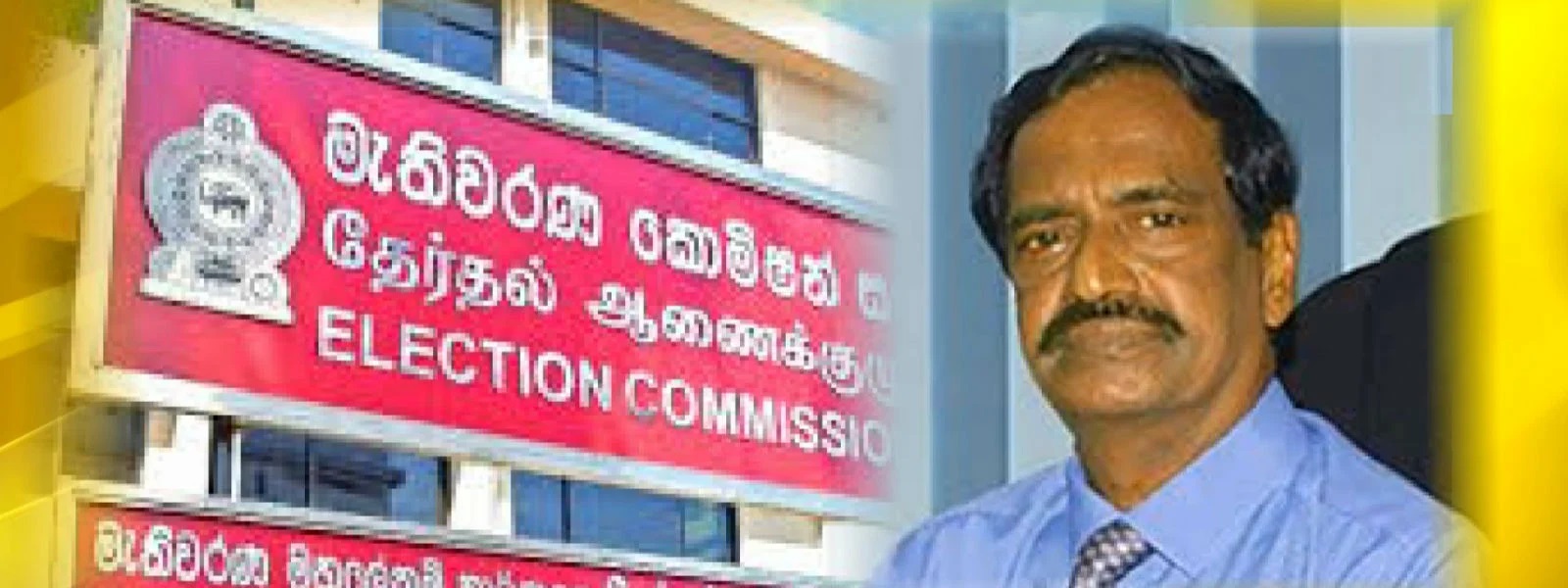Chairman of the Election Commission (EC) Nimal Punchihewa says extremely violent public reaction to Monday’s mob attacks, on those who had been demanding the resignation of the government for over a month, is a grave warning to political parties, represented in Parliament.
In a brief interview with The Island, Attorney-at-Law Punchihewa emphasised the urgent need for political, electoral and constitutional reforms to address the issues at hand.
One-time member of the Human Rights Commission (HRC), Punchihewa stressed Parliament had to fulfill its mandatory obligations.
“Financial discipline and enactment of laws are of pivotal importance. Such measures cannot be delayed further against the backdrop of widespread of violence against lawmakers. Parliament needs to take tangible measures to restore public confidence in democracy,” Punchihewa said.
Punchihewa insisted that violence couldn’t be condoned under any circumstances. Referring to acts of violence, including the setting fire to the Jaffna library on May 31 1981, and the July 1983 riots, Punchihewa said that political parties represented in Parliament should act decisively now, or face the consequences.
Asked to comment on organised attacks on the houses some lawmakers, representing the ruling Sri Lanka Podujana Peramuna (SLPP) and the killing of Polonnaruwa District MP Amarakeerthi Atukorale, at Nittambuwa, Punchihewa said that those who had instigated violence against the protesting public had never expected such a violent reaction.
Countrywide protests reflected the public mood, Punchihewa said. Those who wielded political power never realised the transformation of utter public despair, over the economic fallout, to anger, he added. Had they realised the real crisis, the government wouldn’t have allowed unprovoked attacks on protesting public, he said.
The EC Chairman noted that even if Temple Trees had planned Monday’s meeting, it should have been cancelled in view of the declaration of a State of Emergency. Political parties should take measures as quickly as possible to bring in the much-delayed reforms, Punchihewa said, underscoring the need for transparency in campaign financing and introduction of a recalling system as practiced in many countries.
Responding to another query, Punchihewa said that the EC strongly believed the time was not opportune for a general election, and even before Monday’s calamity a general election wouldn’t have been feasible. Therefore, there should be a consensus on an all-party interim mechanism to govern the country, and tangible measures had to be adopted to address economic woes with a recovery plan being put in place before an election could be conducted, Punchihewa said.
It was regrettable that public opinion had turned against the political party system soon after the celebration of the 90th anniversary of universal franchise, the EC Chief said, recalling how a group of youth representing the Galle Face protesters had explained to EC members their stand on the current political situation. They had spoken on behalf of the voiceless who really experienced the rapid economic decline due to a combination of reasons-ranging from poor economic management to the Russian invasion of Ukraine.
The EC chief said that perhaps the EC should explore ways and means of working with the Human Rights Commission (HRC) to address the issues at hand. There was no point in denying the fact the political party system was in crisis.
Punchihewa pointed out that there had been several proposals from political parties as well as other groups, including the Bar Association of Sri Lanka (BASL) for resolving the crisis, and a consensus had to be reached on them fast. All stakeholders had to be flexible and ready to improve and modify proposals on the table as the country experienced the worst ever economic crisis that now threatened to disrupt supply chains, he added.
Punchihewa pointed out that no less a person than Speaker Mahinda Yapa Abeywardena had recently warned of a possible food shortage. That statement made in his capacity as the Speaker should be examined along with Finance Minister Al Sabry, PC’s confession in Parliament soon after his return from Washington, where Sri Lanka appealed for immediate IMF intervention.
According to Punchihewa, the EC had submitted its proposals to President Gotabaya Rajapaksa as well as Romesh de Silva, PC outfit that recently finalized the draft constitution. Punchihewa said that all those concerned should act fast. The BASL could play a significant role in the overall process to restore political stability, Punchihewa said, warning further delay in consensus among political parties both ion and outside parliament would encourage lawlessness.
EC Chairman said that club-wielding youth checking vehicles on Monday in many parts of the country underscored hitherto unknown danger.


